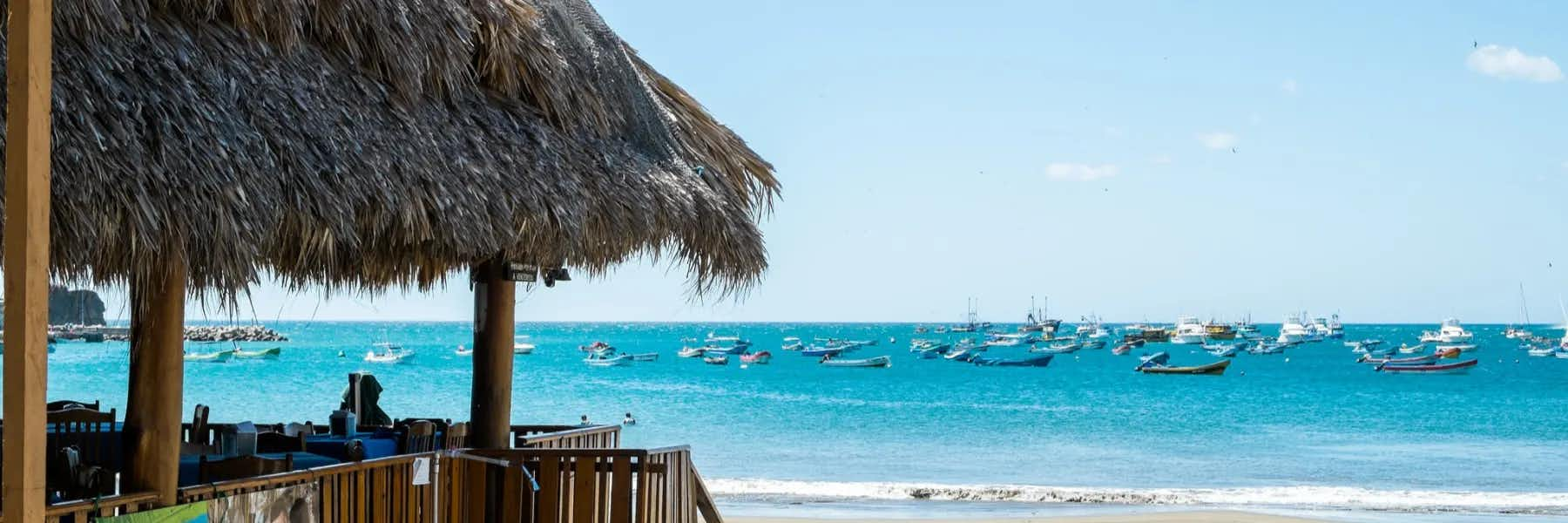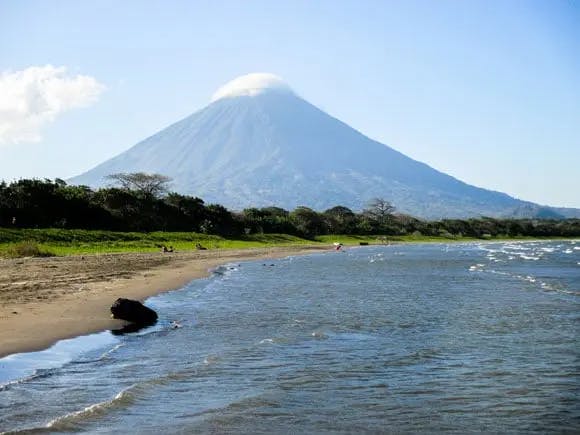For nearly any product you can think of, there is a market in Nicaragua. Today, as thousands of Nicaraguans who fled the Sandinistas during the revolution return to their native country, they bring with them sophisticated tastes and an appetite for the kinds of goods and services they grew accustomed to while in exile in the United States and in Canada. Their return has proved to be an incredibly stabilizing force in this country--both economically and politically. After all, these were the attorneys, the doctors, the better educated in the society who fled.
And now they understand how a free-market economy works. They understand democracy. They speak English. And, perhaps most critically, they form a true middle class with expendable income to buy the goods and services to which they'd become accustomed in North America. That spells opportunity for you.
Nicaragua has one of the fastest real GDP growth rates in Central America. The country has complied (unlike many other nations) with prescribed IMF demands for cutting its deficit, implementing structural reforms, and maintaining overall monetary stability.
Nicaragua is set to benefit from rapid and sustained economic growth in the years to come, growth it has encouraged with the passage of several laws specifically designed to attract and protect foreign investors. According to the Economic and Commercial Section at the U.S. Embassy in Nicaragua, "The in-flow of foreign direct investment has almost doubled [for the most recently-available figures]--from US$97 million in 1996 to US$184 in 1998." About one-third of that investment comes from the United States…investment primarily in agriculture, construction, services, industry, mining, energy, tourism, and aquaculture.
Investing in Nicaragua Involves Very Few Restrictions
In the last decade, Nicaragua has privatized nearly all its old state-owned monopolies, save for the public utilities, and has thus dramatically reduced the amount of government red tape investors have to contend with when they do business here. In addition, it has opened up all sorts of new markets.
A foreign investment law ensures you can repatriate 100% of your profits and, after three years, the initial investment as well. (Even if you don't "register" your investment, banks will freely repatriate profits.)
You'll find no legal grounds for discrimination against you when you invest. The law allows for 100% foreign ownership in every economic sector. And there are no restrictive visa or work permit requirements to inhibit investment.
Investing in Nicaragua Is Safe
Without question, and perhaps contrary to popular belief, Nicaragua is a stable, safe, and peaceful country for investment. There is no doubt that Nicaragua is a developing country, but that does not constitute it being unsafe. In fact, quite the opposite is true: Nicaragua is the second safest country in all of Latin America (behind Uruguay), and Nicaragua has a lower reported crime rate than France, Germany, and the United States, according to a United Nations/Interpol study.
Run Your Tourist Business Tax Free for up to 10 Years
Nicaragua's Law 306 (enacted in September 1999) is the most attractive--and most aggressive--tourism-incentive law in Latin America. If you've ever thought about opening your own B&B, running a tour business, or having a little arts and crafts shop…Nicaragua is the place to do it.
This law is sweeping in scope and offers hard-to-beat benefits for investors who take advantage of the program. If your business qualifies, you pay no income or real estate taxes for up to 10 years, and bring in (or buy locally) all the supplies you need, from furniture and boats to linens and cash registers…tax free.
Not only that, but the application and approval process is straightforward and fast. INTUR, Nicaragua's institute of tourism, has done an outstanding job of cutting through the usual red tape and outlining very clearly what you need to do. In addition, the law allows the agency just 60 days to approve your application so you won't find yourself in limbo for months or even years on end. What's more, depending on the type of project, an investment of only $30,000 can qualify you for benefits.
In general, Law 306 offers investors the following benefits:
Pay no income taxes for up to 10 years
Pay no real estate taxes for up to 10 years
Import into the country all the supplies you need to facilitate your investment--TAX FREE.
A Straightforward Law Promoting Investment in Nicaragua
Nicaragua is slowly being discovered. And an improved tourism infrastructure can only speed the process. Law 306 is a well-crafted document that gives you an incentive--and makes it easy for you--to help jump-start the industry…and make a profit while you're at it.
Several "tourist activities" fall under the law's umbrella, and with an investment in any one of them, you benefit through tremendous tax savings.
Investing in Nicaraguan Real Estate
Without question, Nicaragua has bounced back from its troubled and often misunderstood past and has transformed itself into one of the most sought-after property investment destinations in the world. Investing in Nicaragua affords investors an opportunity to participate in an early-in investment real estate market.
Ideally, you want to invest in any real estate market at the right time and in the right place. Critical to any successful investment is the idea that you must capture the opportunity before the rest of the world catches on. This accomplishment will provide you with the greatest opportunity to maximize your investment. Today, Nicaragua offers investors the optimal investment opportunity: low real estate prices and relatively few competing investors.
Emergence as Retiree Destination and Rise in Tourism
Investing in Nicaragua affords you the opportunity to take advantage of two growing trends in Nicaragua. Today, Nicaragua is attracting lots of foreigners who are retiring in Nicaragua in order to take advantage of the low cost of living and high quality of life in this emerging destination. Also, tourism, which was a nonexistent industry not long ago, is now the country's top earner.















